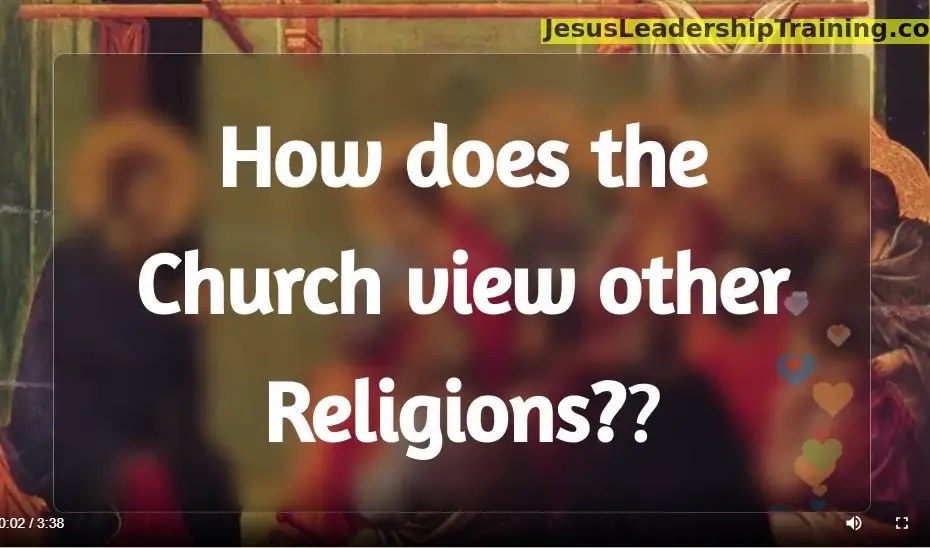The Christian perspective on other religions, alongside the understanding of the Bible’s stance and deriving key takeaways from it, encompasses a multifaceted examination rooted in theological insights, scriptural analysis, and ecclesiastical teachings over the centuries. This response integrates biblical scripture, insights from Martin Luther, Thomas Aquinas, and the broader Christian theological context to provide a comprehensive answer to the question.
Table of Contents
Christian View on Other Religions
Christianity, historically and across various denominations, generally views other religions through the lens of salvation history and divine revelation as centered in Jesus Christ. The foundational Christian claim is that Jesus Christ is the definitive revelation of God, the way, the truth, and the life (John 14:6), and that salvation is found in no one else (Acts 4:12). This does not necessarily entail a dismissive stance toward other religions; rather, it acknowledges that truth and grace can be found outside the visible boundaries of the Christian Church due to the universal action of the Holy Spirit. The Second Vatican Council’s declaration Nostra Aetate exemplifies an open and respectful approach to other religions, recognizing that they often reflect a search for God and may contain rays of truth and holiness.
Relevant Bible Verses
- Acts 4:12: “And there is salvation in no one else, for there is no other name under heaven given among men by which we must be saved.” This emphasizes the unique salvific role of Jesus Christ.
- John 14:6: Jesus said, “I am the way, and the truth, and the life. No one comes to the Father except through me.” This verse underlines the central Christian claim about Jesus as the exclusive mediator of salvation.
- Romans 1:20: “For his invisible attributes, namely, his eternal power and divine nature, have been clearly perceived, ever since the creation of the world, in the things that have been made. So they are without excuse.” This suggests a universal revelation of God through creation, which speaks to all humanity.
Three Main Takeaways
- Christocentric Salvation: Central to Christian doctrine is the belief in Jesus Christ as the unique savior of humanity. While Christianity recognizes the presence of truth and goodness in other religions, it holds that ultimate salvation is through Christ alone.
- Dialogue and Respect: The Christian approach to other religions is characterized by dialogue and respect. Recognizing elements of truth in other faith traditions does not compromise the Christian faith but reflects the universality of God’s grace and the operation of the Holy Spirit beyond the visible confines of the Church.
- Universal Call to Holiness: Christianity asserts that God’s call and offer of salvation extend to all humanity. This universality invites Christians to engage with followers of other religions in a spirit of love, witnessing to the hope that is within them while respecting the religious convictions of others.
These takeaways reflect a balance between affirming the unique and universal claim of Christianity regarding salvation in Jesus Christ and acknowledging the dignity, sincerity, and religious experiences of those outside the Christian faith. This stance encourages respectful engagement and dialogue, aiming for mutual understanding and the promotion of peace and justice among all people.



